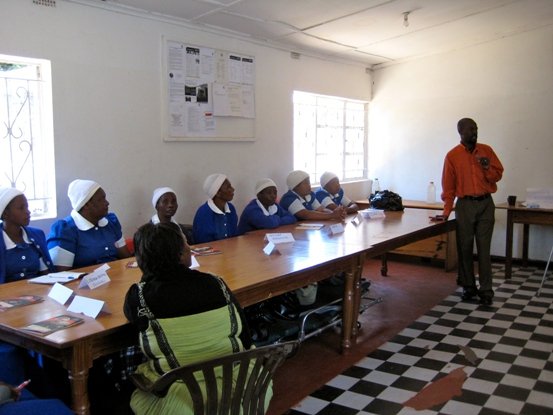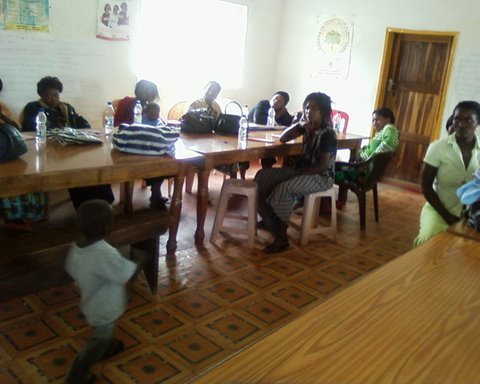By Alka Subramanian | ED/Founder
Training Provided to Caregivers of children in our program
While designing our pediatric HIV/AIDS care program in 2004, one of the questions we repeatedly asked ourselves was: how can this program strengthen the community and empower caregivers (many of them grandmothers) to take care of their family members? We wanted this program to do more than provide food, medicines and health care services to HIV positive children in the community of Matero, in Lusaka, Zambia. We wanted to provide the right tools to the community to take of their family members. Our goal was strengthen the women and grandmothers, so that they could take care of their own children and sick family members at home. With the help of the Harvard School of Public Health, we developed a curriculum especially designed for women caregivers in Zambia. When a child is enrolled in our pediatric HIV/AIDS care program, the parent/guardian undergoes week long training in caring for an HIV positive child. This unique approach has led to survival rates of 95% for children in our program. We have lost 11 children out of the 368 enrolled in the program since 2004 - statistically, we could have lost many more as life expectancy for an HIV positive child at birth is only 4-5 years.
The goal of the training is to equip parents/guardians in basic nursing skills and psychosocial counseling so that the child is under the care of a trained caregiver 24/7. Post training, parents/guardians are able to take care of different kinds of opportunistic infections that are common among HIV positive children at home and are able to identify situations when the child needs a higher level of care. To date more than 450 caregivers have been trained.
Brief description of the Training Program
The following topics are covered in a typical training session:
1. Child health: Importance of visits to the clinic for young children, Nutrition and sanitation, Hygiene, and Medication, Communication and confidentiality.
2. Basic Facts about HIV/AIDS: Voluntary Counseling and Testing (VCT), Antiretroviral Therapy, Adherence.
3. Opportunistic infections and how to treat them at home: Diarrhea, Vomiting, Cough, Fever, Mouth, ear, nose, skin problems, Headaches, Abdominal pains, Tuberculosis
4. Review of danger signs and when to take the child to the clinic/hospital.
5. Psychosocial care and support
6. Signs and symptoms of breast/cervical cancer.
7. Legal help and where to get it.
8. Discussion on the environmental issues.
Measurable Outcomes of the Training
As a result of this training, the parent/guardian is able to:
1. Provide better care to the child in all aspects.
2. Able to share adequate information on HIV/AIDS and ARVs with the child.
3. Parents/caregivers are motivated to go in HIV testing.
4. They are better able to counsel the child.
5. They are able to identify danger signs and refer the child to the next level of care.
6. They are able to adhere to treatment and care hence reducing the number of clinic visits.
We would be happy to provide you with more information on training for grandmothers program.
Thanks again for your support and encouragement.
Links:
Project reports on GlobalGiving are posted directly to globalgiving.org by Project Leaders as they are completed, generally every 3-4 months. To protect the integrity of these documents, GlobalGiving does not alter them; therefore you may find some language or formatting issues.
If you donate to this project or have donated to this project, you can receive an email when this project posts a report. You can also subscribe for reports without donating.
Support this important cause by creating a personalized fundraising page.
Start a Fundraiser
